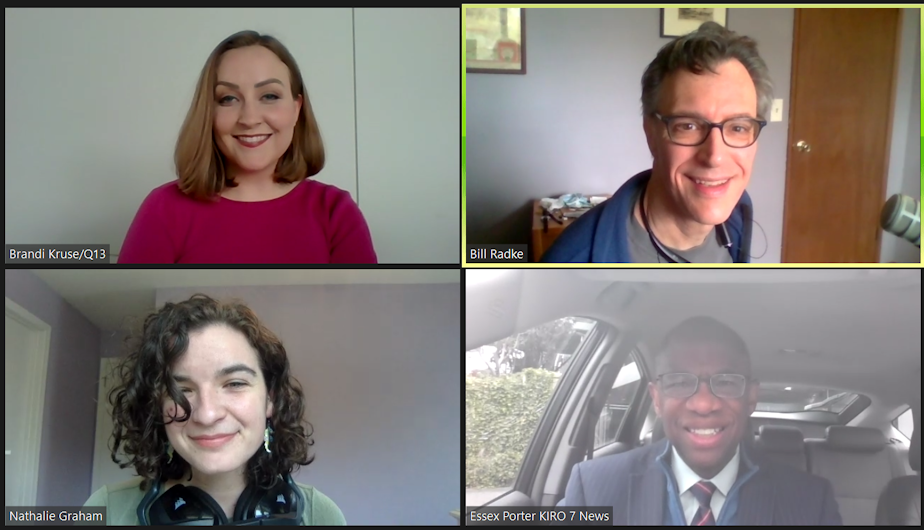Police accountability, a new charter initiative, and the end of the Amazon union push, this week

Bill Radke reviews the week's news with Q13 correspondent Brandi Kruse, Kiro7 reporter Essex Porter, and The Stranger reporter Nathalie Graham.
Amazon will not be unionizing. At least not yet. Out of the approximately 3,200 Bessemer, Alabama warehouse workers that voted, 1,798 voted against the union. This is far from the first time Amazon workers have tried to unionize, but this push was the biggest. So, what happens next? Is this the end of the fight for unionization?
Back here in Washington - as of now all counties are in Phase 3 of the state’s reopening plan. But some counties might have to go back to Phase 2. That would mean going back to twenty-five percent capacity at most businesses. Can businesses financially handle being pushed back to twenty-five percent?
Plus, a coalition of Seattle business leaders and nonprofits has announced a new city ballot initiative that would address homelessness. If voters approve it, it would have the city build two thousand of units of housing, give more access to mental health and addiction services, and it would crack down on tent camps in city parks, sidewalks and other public places. The city is already working to address homelessness, as it has been for years. What would this initiative mean for those efforts?
Besides tents, another big issue with homelessness is people living in their cars. The city only allows you to park in one spot for three days. They've stopped enforcing that limit during the pandemic, but they're set to start enforcing it again sometime this month. Seattle city councilor Kshama Sawant is asking the mayor to hold off on that. She says it criminalizes people for not having a home. We're still in a pandemic, so why has the city decided to enforce this regulation again now?
Finally, this week the Washington state house passed a bill that would require officers to to intervene and report if they see a colleague using unnecessary force on a suspect. This comes at the same time as a report by Crosscut's Melissa Santos that found that approximately 200 current Washington police officers are on the Brady list. Said list is essentially a collection of cops who come with a warning label. There are multiple reasons you can end up on this list, but the most common one is dishonesty. Prosecutors say that being on this list doesn’t necessarily make the officer a dirty cop. Defense attorneys disagree. Why aren't officers being removed from the force after being put on this list?





